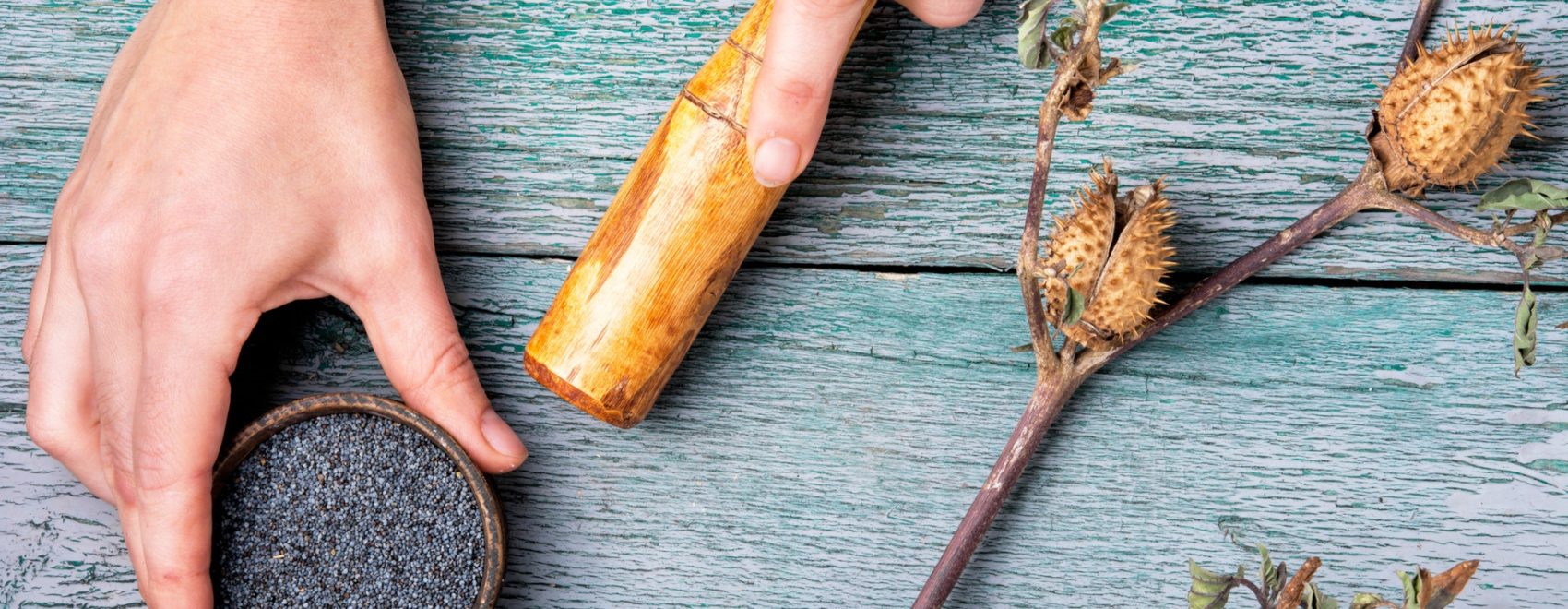People have gotten sick since the first time that Eve got the sniffles, but “modern” medicine has only really existed for about the last 100 years. So what did everybody do before there were antibiotics, acetaminophen, milk of magnesia or triple antibiotic ointment? They used herbal medicine, of course!
All about Herbal Medicine
It used to be commonplace for people to grow and maintain herb gardens for both cooking and healing, but we’ve gotten away from it. But what if something happened and there was no corner drug store? For that reason and several others, it’s time that we got back to the green and away from the pills. Today we’re going to talk about how herbal medicine works and why it’s better than using chemical medications.
What is Herbal Medicine?
Though the term “herbal medicine” is pretty much self-explanatory, the actual application is not. There are many herbs that can both cure you and kill you depending upon the amount, and there are some that you can take on a daily basis just for overall health and wellness. As a matter of fact, most of the early “modern” medicines were extracts of traditional herbs and plants.
Also known as phytomedicine, herbology, herbalism, or botanical medicine, herbal medicine consists of using different parts of herbs and other plants for the purpose of healing.
History of Herbal Medicine
Though herbal medicine doesn’t really have a documented beginning, it’s been used for centuries by most civilizations. Herbs were often used for both healing and for religious ceremonies throughout the world to bring health, good luck, prosperity, blessings, peace, or whatever the ritual may have been for.
The healing herbs were developed and refined by such systems as Traditional Chinese Medicine, Native American Shamanism and Indian Ayurveda into an actual defined way of treating various illnesses and injuries.
Everything from mental illness to cancer had an accompanying herbal treatment and many of them were just as effective, if not more so, than modern treatments.
Just as with modern medicine, there are some milestones that mark the progression of herbal medicine:
- Around 1500BC, it was documented in the Ebers Papyrus that ancient Egyptians used such herbs as garlic, myrrh and juniper for medicinal purposes. The book contains information on nearly 900 medicinal plants.
- In 1000AD “The Leech Book of Bald” documents that people in Britain were using herbs to protect themselves from disease.
- In the 4th century BC, Hippocrates was spreading the word that illnesses were born of natural causes, not superstitious ones and were thus treatable via medicines and procedures.
- In the Middle Ages, many Brits subscribed to the Doctrine of Signatures which meant that God made the plants to be used as medicine, and their appearance echoed their use. For example, dandelions, used to treat jaundice, are yellow.
- In the 1600’s, Nicholas Culpeper used the printing press to spread the word about herbal medicines, much to the chagrin of doctors. He also translated many of the medical journals from Latin to English so that everybody could read them.
- In the 19th century, Samuel Thompson shared his “root and herb” alternative to harsh medical treatments in America and Albert Coffin carried the theory to Britain.
- In 1864, The National Association of Medical Herbalists was established in Europe and is still going strong. Modern registered herbalists combine modern research with historical knowledge and adhere to a strict code of conduct after completing a rigorous training course that lasts at least 3 years.
- In the 20th century, Maud Grieve advocated herbal medicine during WW1, Hilda Leyel founded the Herb Society in 1927. The practice continues to flourish today.
Advantages of Herbal Medicine and Why You Should Grow Your Own
Before we get into all of the good reasons to use herbal medicine, we need to dispel a common myth. Though they are totally natural, herbal medicines aren’t “safer” than modern medicines. Remember that hemlock and arsenic are both natural but either of them will kill you in relatively small doses. They can also interact with each other like standard drugs do.
Now that we’ve clarified that, herbs ARE safer in that they don’t contain harsh, man-made chemicals and there aren’t going to be any additives or preservatives in them as long as you grow them yourself from seeds or buy them organic. You won’t ever need to visit sites like www.sideeffectsofxarelto.org if you stick to the ancient basics.
This is one of the main reasons for using herbs instead of pills; if you buy herbal medications in pill form, they’re going to have fillers. The FDA has some regulations in place but since herbs aren’t manufactured medications, they’re only considered supplements and therefore aren’t subject to the same stringent testing that modern pharmaceuticals are. Drugs from overseas, especially China, are often laden with heavy metals that can be toxic over extended periods of time.
An excellent argument for growing your own herbs and learning how to use them is that if something catastrophic were to happen, you wouldn’t be reliant on a drugstore for life-saving medicines and if there were injuries, you’d have the knowledge and medicines necessary to treat them yourself without needing a hospital.
Stop Waiting and Get Started
Herbology isn’t something that you can learn overnight and even if you could, the plants need time to grow. Check out more articles in this section, including The 8 Best Medicinal Herbs You Must Grow in a Survival Garden. We’ve put together some good info for you that you can use to get started.


Leave a Reply